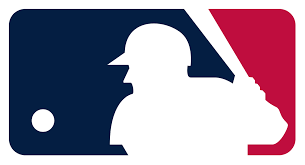MLB
The Major League Baseball (MLB) schedule is a highly anticipated and crucial aspect of the baseball season. Baseball enthusiasts, sports analysts, and fans eagerly await the release of the schedule, as it sets the stage for an action-packed season filled with intense matchups, rivalries, and memorable moments. In this comprehensive guide, we will delve into the intricacies of the MLB baseball schedule, exploring its structure, key features, and the impact it has on teams and fans alike.

MLB Baseball Schedule 2024:
The MLB season typically runs from April to October, divided into the regular season and the postseason. The regular season consists of 30 teams, divided equally between the American League (AL) and the National League (NL). Each team plays a total of 162 games during the regular season, facing opponents within their league and across leagues.
Key Components of the Schedule:
a. Series and Matchups: The schedule is organized into series, with teams playing a set number of games against each other. Series can range from a quick two-game matchup to an extended four-game series. This format allows teams to showcase their strengths and weaknesses over consecutive games.
b. Divisional, Interleague, and Cross-League Play: Teams face their divisional rivals multiple times throughout the season, emphasizing the importance of these matchups. Interleague play adds an extra layer of excitement as teams from the AL and NL face-off, offering fans the chance to witness unique and rare matchups.
c. Home and Away Games: The schedule designates which team is the home and which is the away team for each game. Home-field advantage plays a significant role in baseball, influencing team performance and strategy.
Scheduling Challenges:
a. Travel and Time Zones: With teams located across North America, scheduling poses unique challenges, especially in terms of travel and time zones. Teams often embark on road trips, playing a series of away games in different cities, which can impact player performance.
b. Weather Considerations: Baseball is an outdoor sport, and weather conditions can have a significant impact on gameplay. Rainouts, postponed games, and extreme weather conditions are factors that schedulers must navigate, often leading to rescheduled doubleheaders and logistical adjustments.
Rivalry Games and Special Events:
a. Intense Rivalries:The MLB schedule is strategically crafted to feature intense rivalries that captivate fans and add an extra layer of excitement to the season. Whether it’s the historic Yankees vs. Red Sox rivalry or the iconic Dodgers vs. Giants clashes, these matchups become focal points of the schedule.
b. Special Events:The schedule incorporates special events, such as the MLB All-Star Game and the MLB London Series, which aim to broaden the sport’s global appeal. These events provide fans with unique experiences and showcase the best talents in baseball.
Impact on Teams and Players:
a. Fatigue and Performance:The grueling 162-game schedule can take a toll on players, leading to fatigue and injuries. Teams must carefully manage their rosters, making strategic decisions about player rotations and rest days to ensure peak performance during critical stretches of the season.
b. Playoff Implications:Every game in the regular season contributes to a team’s standing, impacting their chances of making the playoffs. The schedule’s final stretch often sees intense battles for playoff spots, creating a sense of urgency and excitement as teams vie for postseason berths.
Fan Engagement and Experience:
a. Ticket Sales and Attendance: The schedule plays a pivotal role in determining when and where games take place, influencing ticket sales and overall attendance. High-stakes matchups and weekend games often draw larger crowds, contributing to the vibrant atmosphere of baseball stadiums.
b. Television Broadcasts and Streaming: The broadcasting schedule is closely tied to the overall MLB schedule. Networks strategically select marquee matchups for national broadcasts, ensuring maximum viewership. Additionally, the rise of streaming services has expanded access to games, allowing fans to follow their favorite teams regardless of geographical location.
Postseason and World Series:
The regular season sets the stage for the postseason, where the top teams from each league compete in a series of elimination rounds leading to the highly coveted World Series. The postseason schedule is a culmination of months of hard-fought battles, providing baseball enthusiasts with unforgettable moments and nail-biting matchups.
Conclusion:
The MLB baseball schedule is a dynamic and carefully orchestrated plan that shapes the entire baseball season. From the fierce rivalries to the strategic scheduling of games, every aspect contributes to the sport’s appeal and excitement. As fans eagerly await the release of each season’s schedule, they can anticipate a rollercoaster of emotions, intense matchups, and the thrill of watching their favorite teams chase glory on the road to the World Series.
